I have one UIView in circular shape, I need to show that UIView border colour in percentage value like if percentage value is 50%, it should fill half border colour of UIView. I have used UIBeizer path addArcWithCenter however I didn't get perfect solution. Please help me in this
Asked
Active
Viewed 3,617 times
4
Igor
- 12,165
- 4
- 57
- 73
Kashif Jilani
- 1,207
- 3
- 22
- 49
-
4It is already answered. Please [check here](http://stackoverflow.com/questions/26578023/animate-drawing-of-a-circle) – Parth Adroja Aug 15 '16 at 11:34
-
Are you looking for Swift or Objective-C? Perhaps you can share what you tried? – Rob Aug 15 '16 at 12:11
3 Answers
15
You can achieve it with following code, simply adjust strokeStart and strokeEnd:
// round view
let roundView = UIView(frame: CGRectMake(100, 100, 250, 250))
roundView.backgroundColor = UIColor.whiteColor()
roundView.layer.cornerRadius = roundView.frame.size.width / 2
// bezier path
let circlePath = UIBezierPath(arcCenter: CGPoint (x: roundView.frame.size.width / 2, y: roundView.frame.size.height / 2),
radius: roundView.frame.size.width / 2,
startAngle: CGFloat(-0.5 * M_PI),
endAngle: CGFloat(1.5 * M_PI),
clockwise: true)
// circle shape
let circleShape = CAShapeLayer()
circleShape.path = circlePath.CGPath
circleShape.strokeColor = UIColor.redColor().CGColor
circleShape.fillColor = UIColor.clearColor().CGColor
circleShape.lineWidth = 1.5
// set start and end values
circleShape.strokeStart = 0.0
circleShape.strokeEnd = 0.8
// add sublayer
roundView.layer.addSublayer(circleShape)
// add subview
self.view.addSubview(roundView)
gvuksic
- 2,983
- 3
- 32
- 37
-
I think you should remove `circleShape.strokeStart = 0.0 circleShape.strokeEnd = 0.8` to make it draws correctly percent. – Luat Vu Dinh Sep 08 '20 at 03:22
-
1
I've written my custom function for doing this in Swift 5. I'm sure I'll save someone a lot of time. Have fun with it.
func buildRoundView(roundView: UIView, total : Int, current : Int){
roundView.layer.cornerRadius = roundView.frame.size.width / 2
roundView.backgroundColor = .clear
let width :CGFloat = 10.0
let reducer :CGFloat = 0.010
let circlePath = UIBezierPath(arcCenter: CGPoint (x: roundView.frame.size.width / 2, y: roundView.frame.size.height / 2),
radius: roundView.frame.size.width / 2,
startAngle: CGFloat(-0.5 * Double.pi),
endAngle: CGFloat(1.5 * Double.pi),
clockwise: true)
let multiplier = CGFloat((100.000 / Double(total)) * 0.0100)
for i in 1...total {
let circleShape = CAShapeLayer()
circleShape.path = circlePath.cgPath
if i <= current {
circleShape.strokeColor = UIColor.systemRed.cgColor
}
else{
circleShape.strokeColor = UIColor.lightGray.cgColor
}
circleShape.fillColor = UIColor.clear.cgColor
circleShape.lineWidth = width
circleShape.strokeStart = CGFloat(CGFloat(i - 1) * multiplier) + reducer
circleShape.strokeEnd = CGFloat(CGFloat(i) * multiplier) - reducer
roundView.layer.addSublayer(circleShape)
}
}
ibyte
- 463
- 4
- 17
0
According @gvuksic's answer:
Swift 5:
// round view
let roundView = UIView(
frame: CGRect(
x: circleContainerView.bounds.origin.x,
y: circleContainerView.bounds.origin.y,
width: circleContainerView.bounds.size.width - 4,
height: circleContainerView.bounds.size.height - 4
)
)
roundView.backgroundColor = .white
roundView.layer.cornerRadius = roundView.frame.size.width / 2
// bezier path
let circlePath = UIBezierPath(arcCenter: CGPoint (x: roundView.frame.size.width / 2, y: roundView.frame.size.height / 2),
radius: roundView.frame.size.width / 2,
startAngle: CGFloat(-0.5 * .pi),
endAngle: CGFloat(1.5 * .pi),
clockwise: true)
// circle shape
let circleShape = CAShapeLayer()
circleShape.path = circlePath.cgPath
circleShape.strokeColor = UIColor.customColor?.cgColor
circleShape.fillColor = UIColor.clear.cgColor
circleShape.lineWidth = 4
// set start and end values
circleShape.strokeStart = 0.0
circleShape.strokeEnd = 0.8
// add sublayer
roundView.layer.addSublayer(circleShape)
// add subview
circleContainerView.addSubview(roundView)
And the result:
oskarko
- 3,382
- 1
- 26
- 26

